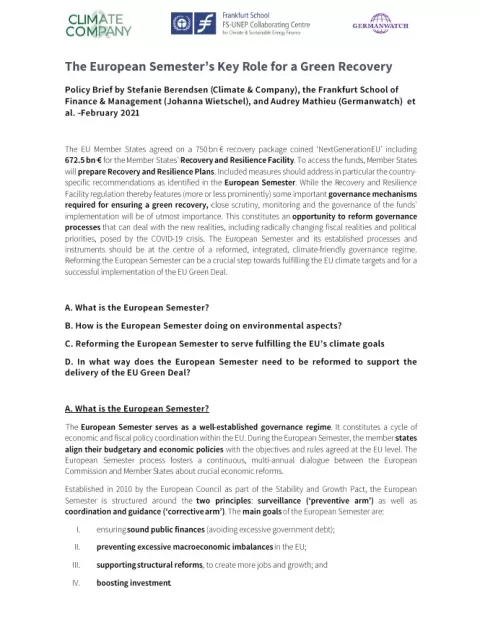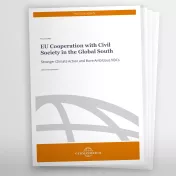
As a response to the Covid-19 crisis the EU has agreed on a historic recovery package of 750€ Billion, which includes funds for EU member states. In order to apply for financial support, EU member states need to provide Recovery and Resilience Plans. They may take into consideration country-specific recommendations, developed annually to address macroeconomic imbalance issues among EU Member States as identified within the European Semester.
The European semester describes a process for member states to align their economic and fiscal policies with common objectives and rules agreed on in a multi-annual dialog at EU level. The Semester is generally lacking endorsement of climate-related indicators concerning governance structure and therefore does not fulfil its entire potential. In 2019, the Commission started to include sustainability aspects in its ‘Annual Sustainable Growth Strategy’. As a result, environmental aspects were integrated in country reports to state national contribution to the Sustainable Development Goals as part of the EU’s climate commitment. This can be seen as a first step of reform to place sustainability and climate-related aspects at the core of the European Semester.
In fulfilling the climate targets of the EU and managing to undertake necessary economic reforms, the European Semester could play a rather visible key role. It provides the platform for finance ministers and creates transparency and awareness among all Member States. To ensure action that follows the do-no-significant-harm principles and the EU Taxonomy, a reliable monitoring mechanism needs to be applied, to national Recovery and Resilience Plans.
Since monitoring is also required to evaluate a climate quota, the European Semester could play a constructive role in establishing this mechanism.



